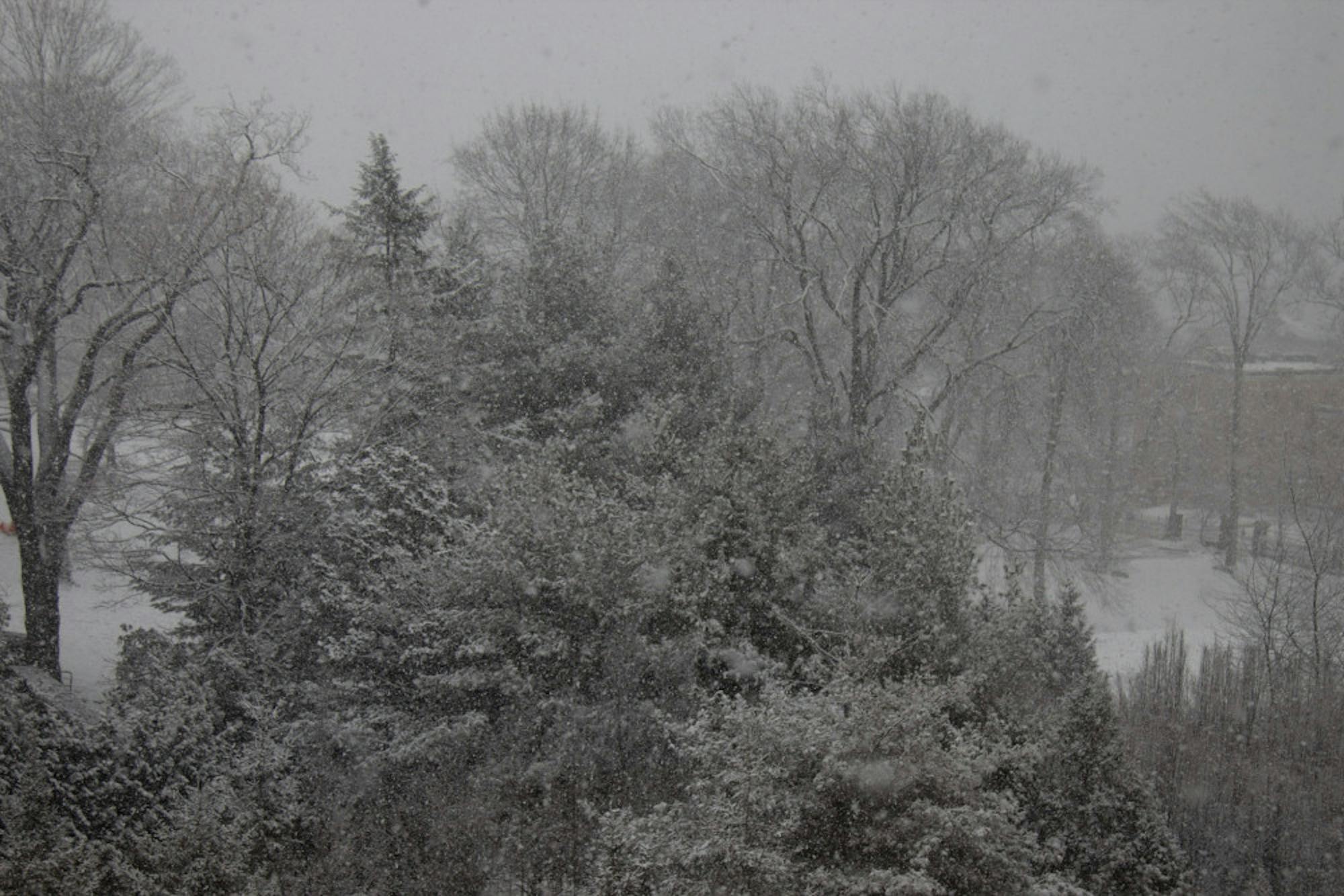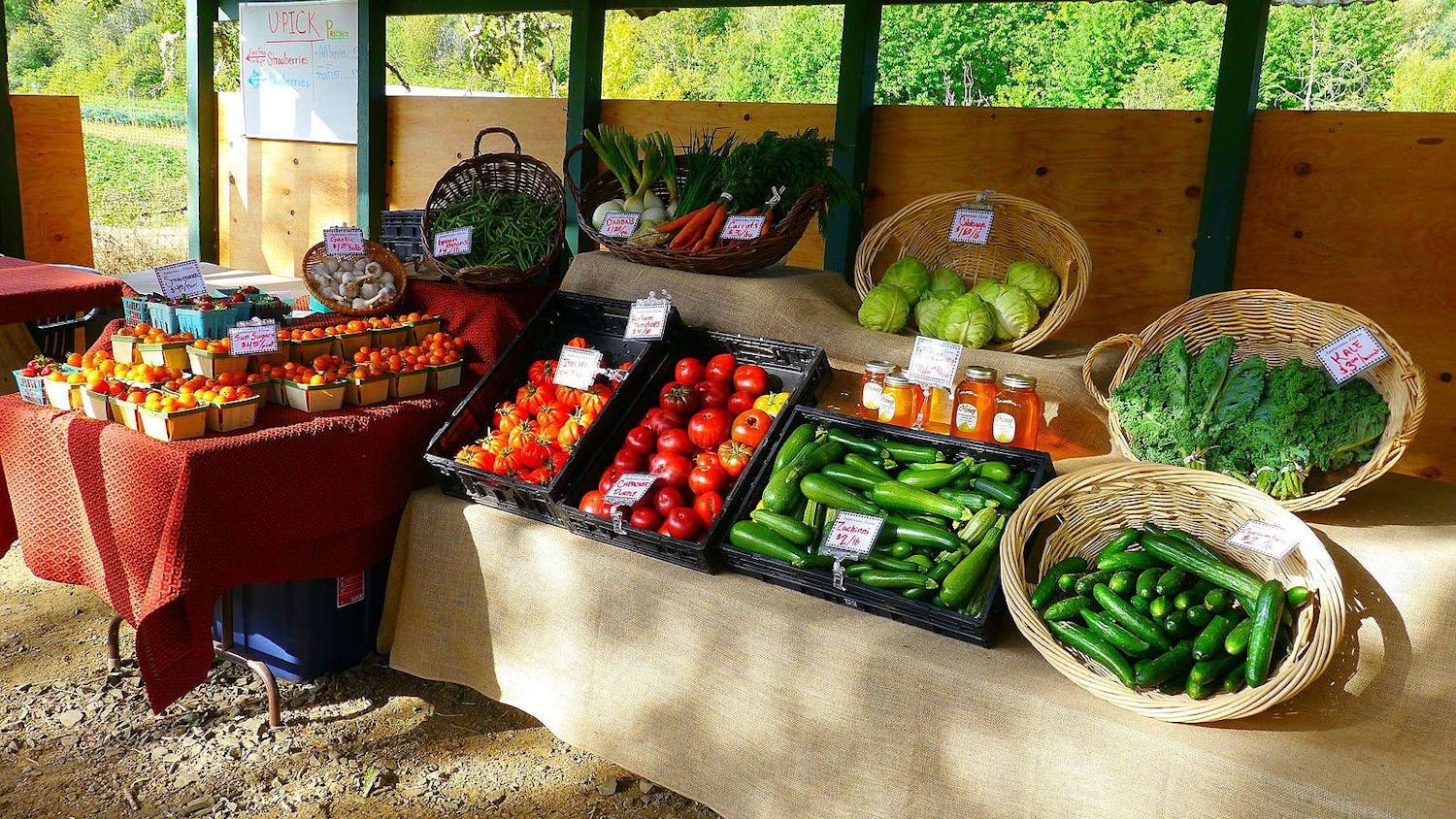When first-year Robert Yepes moved from Thailand to Texas in the middle of this academic year, he didn’t expect to be part of a major news story. However, when unexpected cold temperatures and an energy crisis struck his new home state in the middle of February, causing his family to lose power and water, Yepes found himself and his family in the national spotlight.
“Having been raised outside of America, I feel like a lot of the news is about America, and now I’m in it, which is definitely weird,” Yepes, who is studying remotely this semester, said.
Though the freezing temperatures and snow were initially exciting — Yepes and his family even made a snowman — that excitement quickly wore off.
“Cold weather and losing power doesn’t sound like that big of a deal, but it looked like a zombie apocalypse when I went outside. The sky was all gray; the streets were empty because no one here knows how to drive on icy roads and there had already been a few accidents,” Yepes said.
Without power and Wi-Fi, it was difficult for students studying from Texas to attend class and do their work, but Yepes said that his professors were supportive.
Similarly, second-year philosophy master’s student Matthew Koshak, who had also been studying remotely in Texas during the winter storm, lost cellular service and Wi-Fi, so he had to walk around his neighborhood to find spots where he could email his professors. He agreed with Yepes: “The faculty was concerned; the professors I had were flexible. Tufts institutionally came through in a way that other universities might not have.”
For students on campus who are from Texas, the storm presented a different set of challenges as they worried about their families and at times struggled to contact them.
Sophomore Katelyn Young, a Houston native, said, “My mom and I are really close. I remember she would text me and be like ‘Katelyn, please don’t text me. I have to try and save battery on my phone.’ [This] was really scary for me because I wanted to help so badly but being on campus, I couldn’t help her.”
Just as during the pandemic, when the best way to help others is to stay apart, the best way for Young to help during the storm was by not reaching out to her family in Texas, including her older grandparents, which caused her to feel further from them.
Bo Johnson, also a sophomore from Houston, felt this tension and looked for a way to support his home state. Turning to Twitter, he discovered a phone bank, run by former Texas Rep. Beto O’Rourke, through which he called elderly Texans to check in on them and connect them to local resources. While the system was the same one used for political phone banking events, this time there was no need to convince anyone of anything — only a desire to spread kindness and support others.
While the people Johnson reached were generally safe, others who volunteered with the phone bank provided potentially life-saving assistance to seniors in distress.
“Some other people helped [people who] hadn’t eaten in a couple of days.” Johnson said, “Through the phone bank they were able to connect them with people who could bring them food or water.”
As most people throughout the state now have their power and water restored and are generally safe, Johnson and Young expressed hope that the problems revealed by this crisis will galvanize statewide changes in leadership and energy policy. Johnson said that while some issues he was already concerned about were exposed, he also learned about previously unfamiliar shortcomings in Texas’ politics and energy systems.
“The national attention on Texas was probably good because it exposed a lot of issues I didn’t know about and I’m sure most Texans didn’t know about [in relation to] the power grid in the state,” Johnson said.
Specifically, unlike the power grid of the other 47 contiguous states and Washington D.C., Texas’ power grid is not connected to the rest of the nation’s, with some exceptions near the state's edges. This means that the state is not subject to certain federal regulations and that other states can’t provide energy aid as easily in times of crisis. This decades-old system was a source of frustration for some students, but it was dwarfed by their disillusionment with Texas’ leaders, in terms of both how they govern the state and their stance on climate change.
“At the very least I hope that people recognize that there are certain figures in Texas politics that seem not to care very much about people being in the cold and waterless," Koshak said. “I hope that that leaves a sour taste in people’s mouths, and that some Texans — if they don’t believe the narrative about [climate change] — can not like certain politicians enough to vote them out of office."
After sophomore Alex Hovsepian’s parents and brother lost power, water, some furniture and part of their roof during the storm in Houston, Hovsepian said that the crisis has led to new conversations among his family and friends.
“It started some good conversations with members of my family and with other people I knew from Texas, about what the leadership is like and if it is necessarily what is best for the state,” Hovsepian said.
Koshak and others expressed cautious optimism that the crisis will also force Texans and state leaders to confront the changing climate and the implications that it will have on their state.
However, all of this hope comes with an acknowledgment of loss. In addition to the suffering of the students' families, dozens of deaths have been recorded in connection with weather and power problems.
“I see this as a very manufactured crisis," Koshak said. "While I am happy that there are politicians that are having their feet held to the fire … counting that [as] progress [in light of the deaths], particularly of people who are less privileged, is a hard thing to do.”
While there is no way to recover the lives lost or reverse the suffering, students from Texas echoed the hope that this can be a turning point so that something like this will never happen again.
“From my viewpoint, I find that a lot of people in Texas find it easy to stay away from problems because they’re like, ‘It doesn’t affect me,’ but the fact that so many people were affected by this problem [makes it] I think — I hope — a catalyst for change,” Young said. “Not that I’m glad it happened, but I’m glad that it brought attention to problems that people try to stay away from.”






